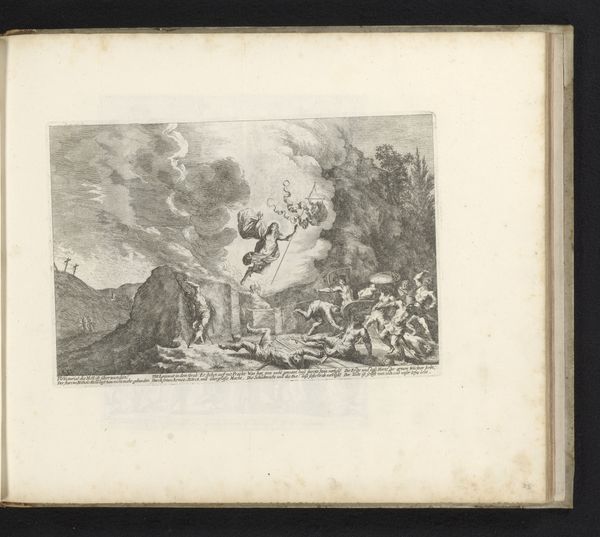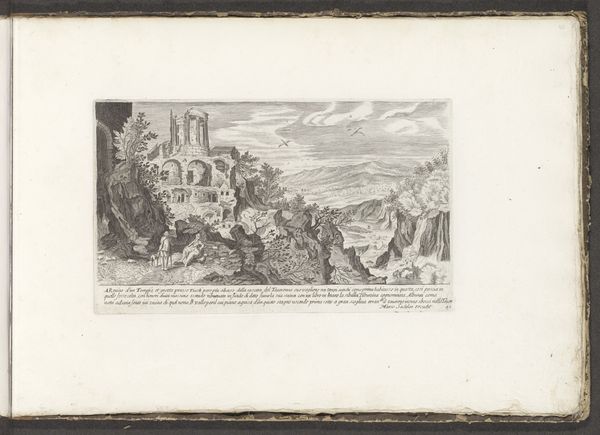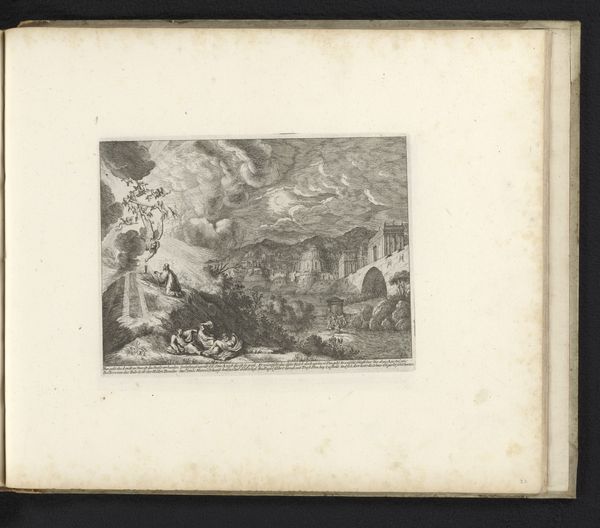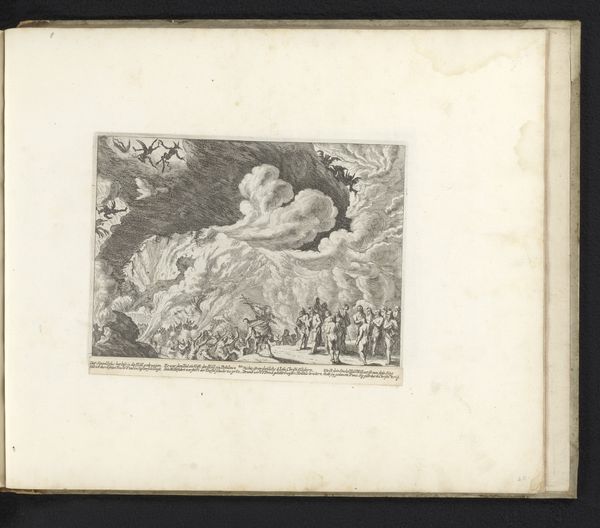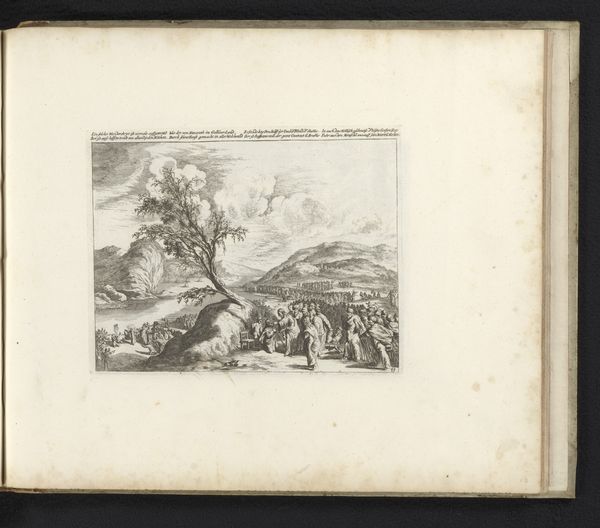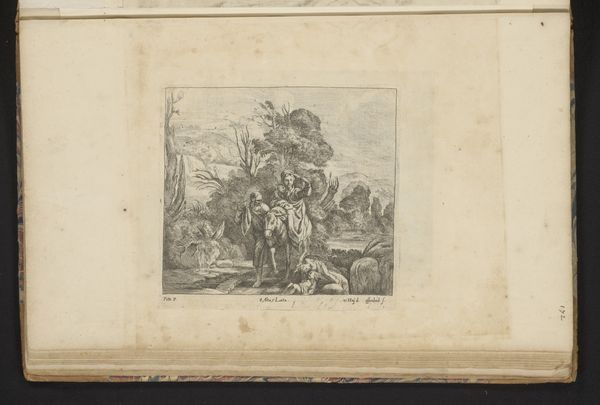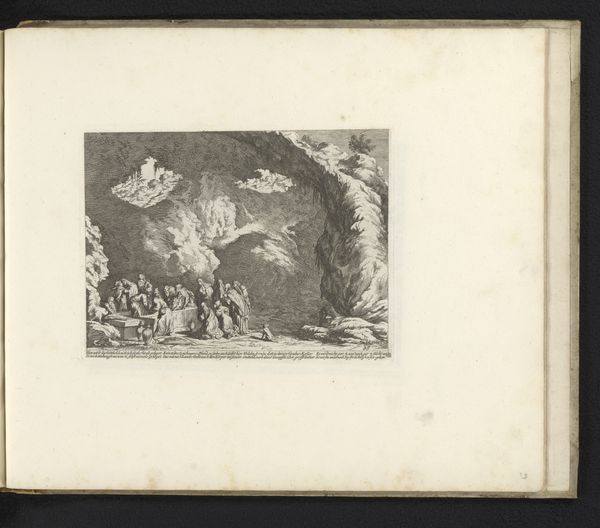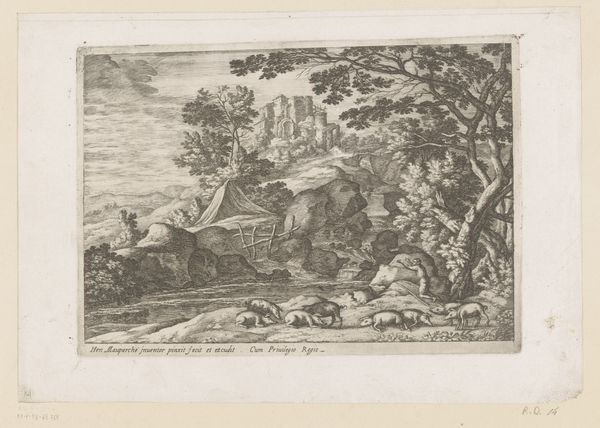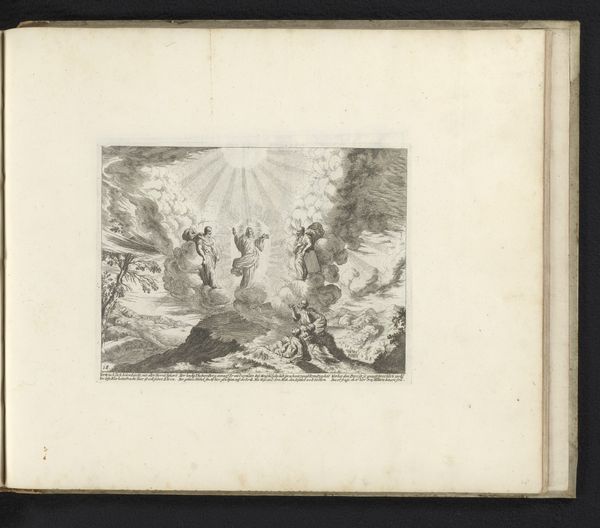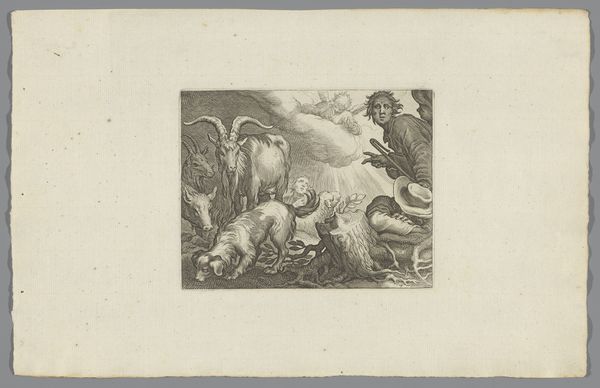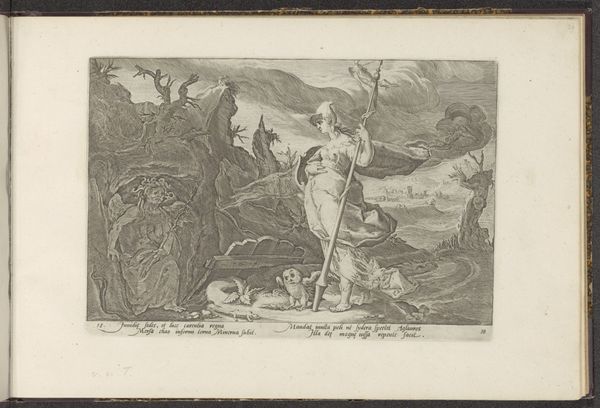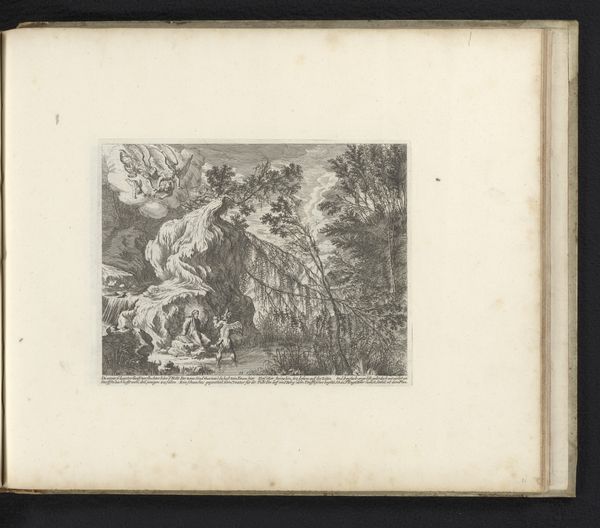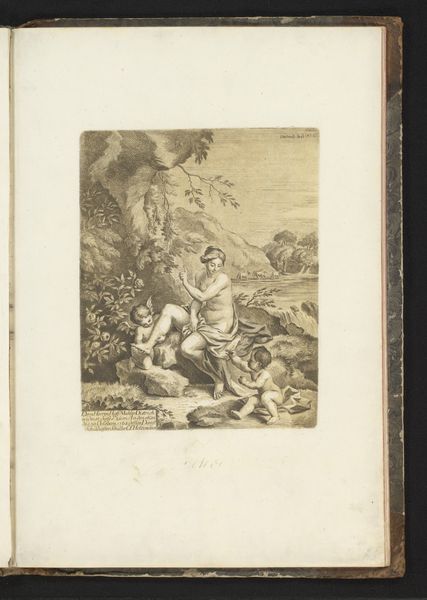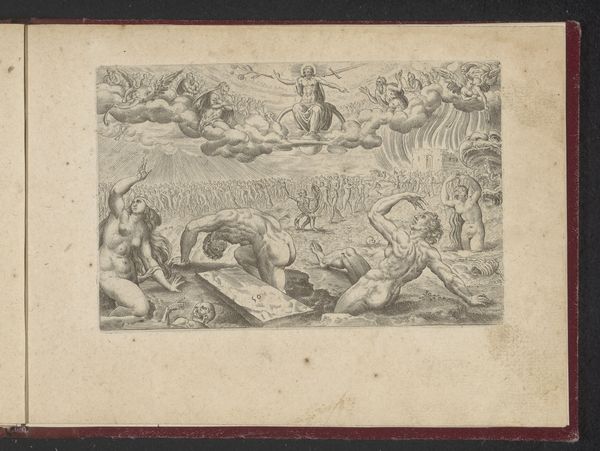
engraving
#
aged paper
#
toned paper
#
allegory
#
baroque
#
old engraving style
#
pen work
#
history-painting
#
engraving
Dimensions: height 220 mm, width 226 mm
Copyright: Rijks Museum: Open Domain
This is Melchior Küsel's etching, "Personification of Envy", made in the second half of the 17th century. It's an allegorical print, visualizing Envy as a destructive force. In the etching, Envy is depicted as a gaunt, wild-haired figure, brandishing a flaming torch. Below him are scenes of discord and violence, while above, the gods look on. This image creates meaning through visual codes: fire representing destruction, the gods alluding to a moral order, and the chaotic scene below representing the earthly consequences of envy. Made in Germany, this print reflects the cultural and religious upheavals of the post-Reformation era. As a commentary on social structures, the print is conservative. It offers a moral lesson about the dangers of envy, reinforcing the importance of social harmony. To understand this print better, we might research the artistic conventions of allegorical prints and examine the socio-political context of 17th-century Germany. Such investigations reveal that art’s meaning is always contingent on its social and institutional context.
Comments
No comments
Be the first to comment and join the conversation on the ultimate creative platform.
